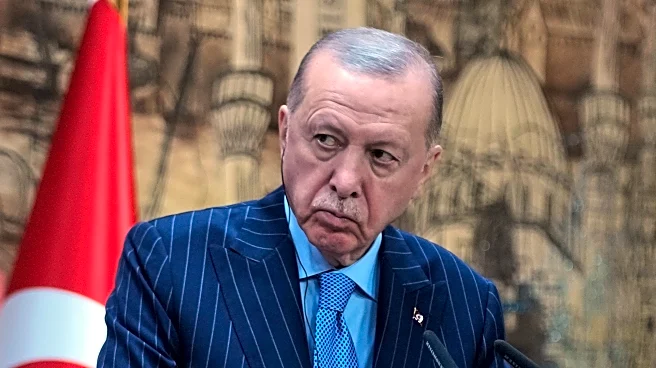Rapid Read • 8 min read
The United States has announced an additional 25 percent tariff on Indian exports, effective August 27, in response to India's continued purchases of Russian oil. This decision, confirmed by the U.S. Department of Homeland Security, will increase the total tariffs on Indian exports to 50 percent. India, which imports approximately 37 percent of its oil from Russia, has been a significant buyer since Russia's invasion of Ukraine in February 2022. Despite the increased tariffs, Indian oil refiners plan to reduce, but not cease, their purchases of Russian crude oil. The reduction is expected to bring purchases down to between 1.4 to 1.6 million barrels per day, from a monthly average of 1.8 million barrels per day in 2025.
AD
The U.S. tariff increase on Indian exports is a strategic move aimed at pressuring India to reduce its reliance on Russian oil, which is a critical revenue source for Russia amid its ongoing conflict with Ukraine. This action could significantly impact India's trade dynamics and economic relations with the U.S., potentially leading to increased costs for Indian exporters and affecting bilateral trade. Additionally, the reduction in Indian purchases of Russian oil could constrain Russia's ability to fund its military operations, thereby influencing the geopolitical landscape and economic stability in the region.
India's response to the increased tariffs will be crucial in determining the future of its trade relations with the U.S. and its oil procurement strategy. Indian refiners may seek alternative sources to mitigate the impact of reduced Russian oil imports. Meanwhile, the U.S. may continue to leverage economic measures to influence global oil trade dynamics and support Ukraine. The situation could lead to further diplomatic negotiations or adjustments in trade policies between the involved nations.
The tariff increase highlights the complex interplay between international trade policies and geopolitical conflicts. It underscores the U.S.'s strategic use of economic tools to influence global political outcomes and support allies. The move also reflects broader tensions in international relations, where economic dependencies are increasingly leveraged for political purposes.
AD
More Stories You Might Enjoy













